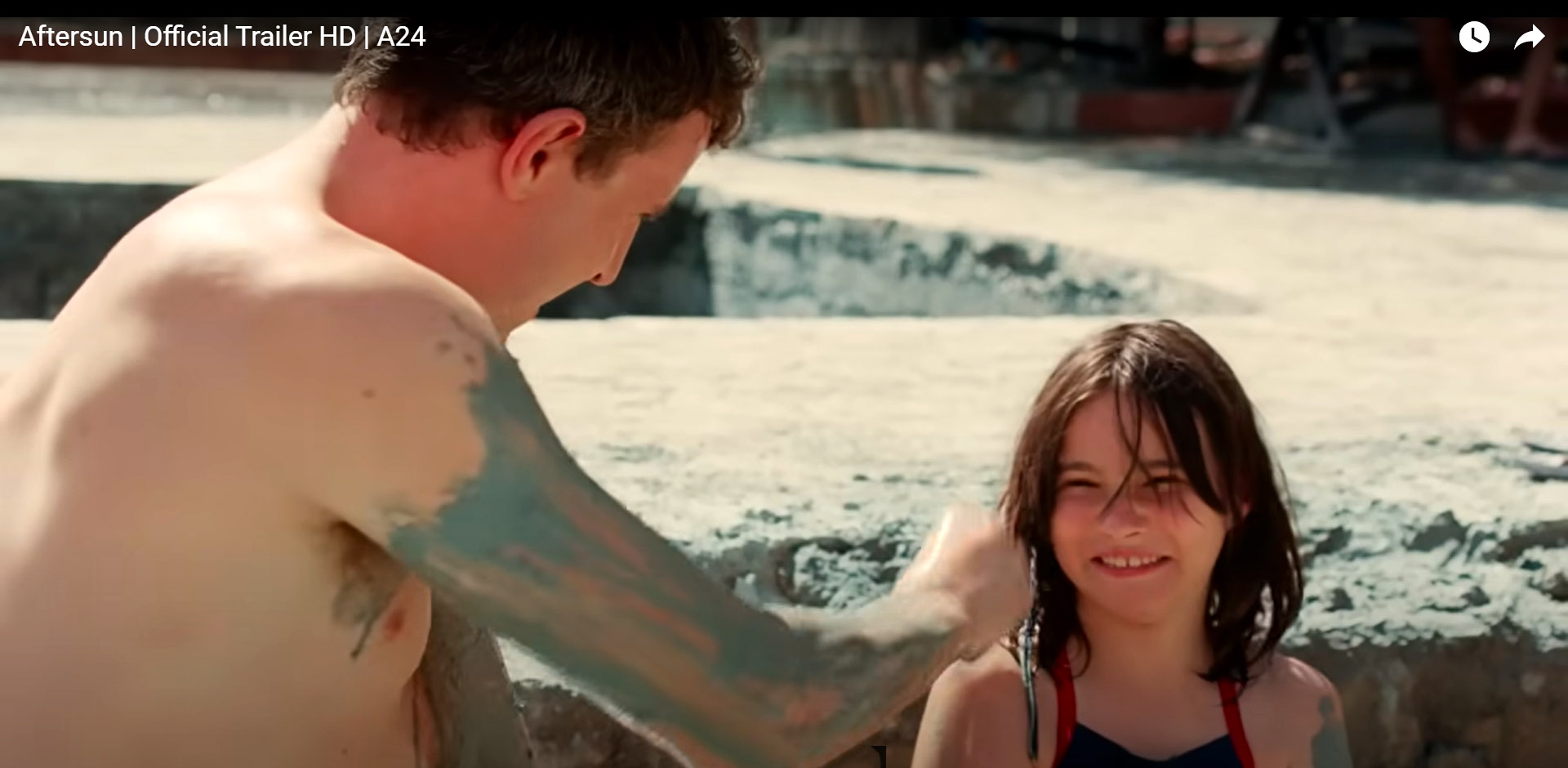'Aftersun' review: This is the best film of the year by a first time writer-director
"Aftersun" debuted at the Cannes Film Festival and left a lasting impression.

I've been thinking about "Aftersun" since its debut at the Cannes Film Festival in May. Now it's in theaters where no excuses will be accepted for you missing it. This is the best film of the year by a first time writer-director.
The Scottish newbie is Charlotte Wells, 35, and her debut is a cause for celebration. Don't expect sexual shocks or show-off effects. For Wells, the territory of the human heart is all she needs to keep us smiling, nodding in recognition and then fighting back tears.
"Aftersun" is a father-daughter story, based on Wells' life as a young girl on vacation with her dad. The time is the late 1990s when the Walkman and karaoke held sway. The place is a budget beach resort in Turkey far from Scotland where dad left her and mom to live in London.

Looking to spend time with each other, 11-year-old Sophie (knockout newcomer Frankie Corio) and her father Calum (Paul Mescal) make memories with a camcorder that the grown and queer Sophie (Celia Rowlson-Hall), now a parent, reflects on with sweetness and regret.
Delicate business is being transacted in this place where meaning is found in exchanged looks and the space between words. Wells can distill a life in the way an agonized Calum -- with a cast on his forearm -- smokes silently on a balcony while his daughter sleeps or pretends to.
Wells suggests that Calum is now dead and Sophie, in a ghostly dance, is using her childhood memories to make sense of her father in her own adulthood. That's a tall order that Wells executes with powers of observation that filmmakers twice her age might envy.
There's the sight of Sophie negotiating the treacherous turning point between childhood and adolescence. Or Calum dancing alone, lost in a strobe-lit club. As dad tells daughter, "There's this feeling, once you leave where you're from, that you don't totally belong there again."

Sophie feels a sense of abandonment magnified later when Calum, a slave to his quicksilver moods, sends her on stage by herself to do a karaoke version of "Losing My Religion" that they had planned as a duet. Wells doesn't give us details, only the sorrow eating at this young father as he vainly tries to keep the best side of himself alive for Sophie.
This would be a good time to extol the brilliant, breathtaking, soul-deep performances of Mescal and Corio that represent acting at its truest and finest. Corio was cast after a Facebook call for unknowns. And what a genuine find she is.
The Irish Mescal, 26, who earned an Emmy nomination and sex symbol status opposite Daisy Edgar-Jones on Hulu's "Normal People," is an extraordinary actor, as witness to his excellence even in smaller roles in "God's Country" and "The Lost Daughter." In "Aftersun," he fills a complex role with disarming charm and elemental power.
The empathy that Wells and her actors invest in these characters gives "Aftersun" the capability to sneak up and floor you. Is the film too small for awards attention? Hardly. Last year, the mesmerizing miniature that was "CODA" took home the Best Picture Oscar.
One thing is for sure: you won't be able to get "Aftersun" out of your head and heart.



